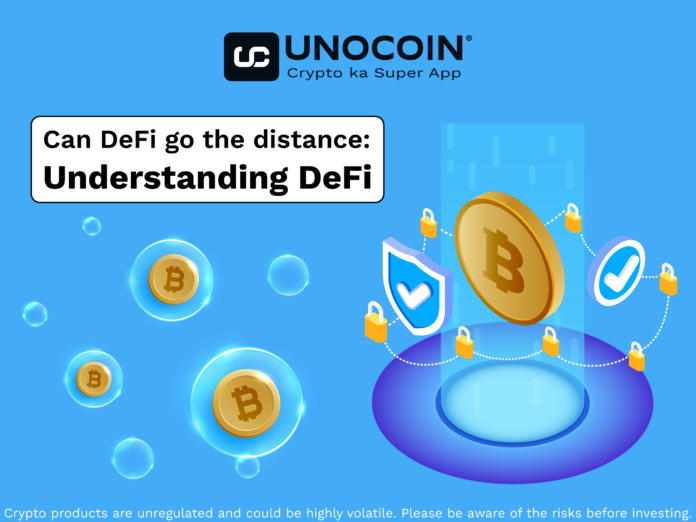DeFi, short for Decentralized Finance, is a rapidly growing blockchain and cryptocurrency sector that aims to restore traditional financial services without relying on centralized intermediaries such as banks or financial institutions. While DeFi has shown tremendous promise and potential, there are challenges and considerations that may determine its long-term success.
Advantages of DeFi:
Financial Inclusion:
DeFi enables access to financial services for unbanked or underbanked individuals, especially in regions with limited banking infrastructure. Anyone with an internet connection can participate in DeFi protocols.
Transparency:
All transactions and smart contract operations on DeFi platforms are recorded on the blockchain, ensuring transparency and auditability.
Programmability:
Smart contracts in DeFi can be programmed to automatically perform various financial functions, providing efficiency and reducing the need for manual intervention.
Global accessibility:
DeFi applications are accessible to anyone globally, without the need for traditional identification or credit checks.
Real-world examples:
MakerDAO (DAI):
MakerDAO is a decentralized lending platform built on the Ethereum blockchain. Users can lock up their cryptocurrency assets as collateral and borrow DAI, a stablecoin pegged to the US dollar. This system allows users to access liquidity without relying on a centralized entity, an example of how DeFi can facilitate lending and borrowing services.
Uniswap:
Uniswap is a decentralized exchange (DEX) that allows users to exchange various Ethereum-based tokens directly from their wallets. Liquidity providers earn fees by contributing to liquidity pools. Uniswap demonstrates the potential of DeFi to create efficient and automated decentralized trading platforms.
Challenges and Considerations:
Security risks:
Vulnerabilities in smart contracts can lead to hacks and abuse of DeFi platforms, resulting in significant financial losses. Ensuring robust security audits and best practices is essential for DeFi to gain long-term trust.
Regulatory uncertainty:
The regulatory environment around DeFi is still evolving. Adhering to existing financial regulations and dealing with potential regulatory changes will be essential for DeFi to thrive sustainably.
Scalability:
The current state of some blockchain networks such as Ethereum may struggle to handle the growing demand and transaction volume of DeFi applications, leading to high fees and slower processing.
User experience:
DeFi platforms can be complex and difficult to navigate for newcomers. Improving the user experience will be essential to attract a wider audience.
Conclusion:
In conclusion, DeFi has the potential to revolutionize the financial landscape by offering transparent, accessible and programmable financial services. Real-world examples like MakerDAO and Uniswap demonstrate its capabilities. However, to go further, DeFi needs to address security issues, adapt to regulatory changes, improve scalability, and improve the overall user experience. If these challenges are met successfully, DeFi could play a key role in shaping the future of finance.





[…] publish The Growing Reputation of DeFi and Its Potential | decentralized finance appeared first on Unocoin […]
Comments are closed.